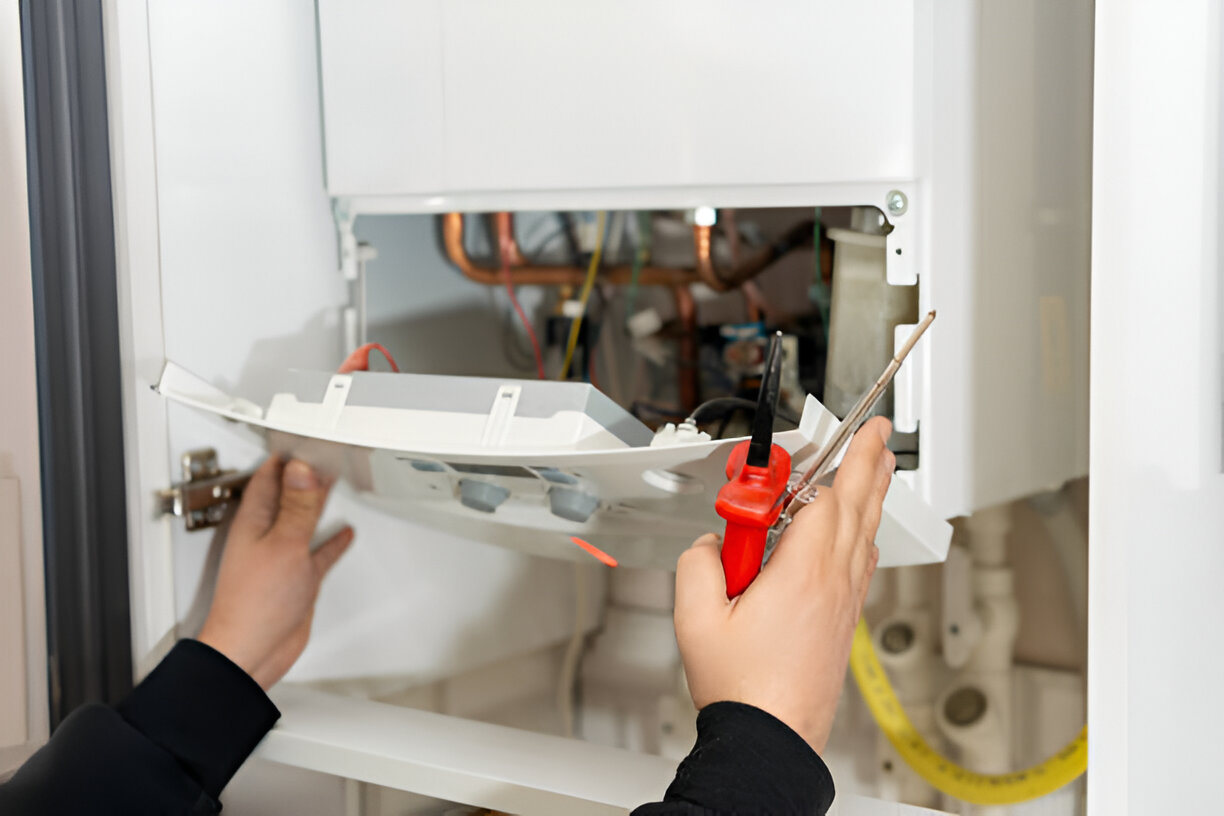Furnace Tune Up in Lone Tree, CO
A professional furnace tune up in Lone Tree, CO keeps your home warm, reduces energy costs, and prevents unexpected breakdowns during cold Front Range winters. Tune ups are more than a quick inspection: they identify safety risks, restore combustion efficiency at higher altitudes, and optimize airflow so your system runs reliably through the heating season.

Why a furnace tune up matters for Lone Tree homes
Lone Tree sits at high elevation on the Denver metro’s southern edge. That means:
- Colder winters and wide daily temperature swings increase furnace run time and stress components.
- Thinner air at altitude affects combustion. Burners and controls need precise adjustment for safe, efficient operation.
- The semi-arid environment and seasonal winds bring dust and pollen that clog filters, ducts, and burners faster than in more humid climates.
A complete tune up addresses these local challenges so your furnace can safely and efficiently heat your home when you need it most.
What a comprehensive furnace tune up includes
A proper tune up is methodical and follows a checklist. Key elements include:
- System inspection
Visual and operational check of the furnace cabinet, heat exchanger, vents, and exhaust for signs of wear, corrosion, or leaks. - Thermostat calibration
Verifying thermostat accuracy and cycle behavior to ensure your system responds correctly to set temperatures and avoids short-cycling. - Burner and ignition adjustment
Cleaning and adjusting burners, inspecting the ignition system or pilot, and confirming proper flame pattern for complete combustion—critical at high altitude. - Airflow and blower motor checks
Measuring airflow, inspecting the blower assembly, lubricating bearings if applicable, and tightening electrical connections to maintain proper circulation. - Filter inspection and recommendation
Evaluating filter condition and advising on the correct filter type and MERV rating for Lone Tree homes. - Safety control testing
Testing limit switches, rollout sensors, pressure switches, and the flue/venting system to confirm all safety interlocks operate correctly. - Combustion and CO risk assessment
Checking for signs of incomplete combustion and performing a visual assessment for potential carbon monoxide pathways. (When necessary, more advanced CO testing is recommended.) - Efficiency optimization
Adjusting system controls, ensuring proper fuel-to-air ratio, and recommending duct sealing or insulation improvements to reduce heat loss. - Written checklist of completed tasks
Clear documentation of what was inspected, adjusted, cleaned, or replaced so you have a record for future maintenance and possible warranty needs.
Typical diagnostic process
- Start with a system history and occupant observations (noise, odors, cycling).
- Power up and observe startup sequence, ignition, and initial combustion behavior.
- Measure electrical loads and blower RPMs, then inspect airflow and static pressure.
- Open the cabinet for burner cleaning, flame inspection, and heat exchanger visual check.
- Validate safety controls and vent termination for proper draft.
- Document findings and present the completed checklist.
Common furnace problems in Lone Tree, CO
- Dirty burners and clogged filters from dust and dry-season particles.
- Thermostat drift or poor placement that misreads home temperature during large daytime/nighttime swings.
- Short-cycling caused by airflow restriction or improper thermostat settings.
- Pilot or ignition issues aggravated by altitude-related combustion differences.
- Reduced efficiency and higher utility bills from unsealed ductwork and insufficient insulation.
- Corrosion or venting problems from seasonal moisture changes in enclosed utility spaces.
What a tune up fixes or prevents
- Restores safe combustion and reduces carbon monoxide risk by ensuring burners and vents operate properly.
- Reduces energy use by optimizing combustion and airflow, often improving furnace runtime efficiency.
- Extends equipment life by addressing minor wear before it becomes a costly failure.
- Improves indoor comfort with balanced airflow and accurate thermostat control.
- Lowers likelihood of emergency repairs during peak cold periods.
Typical maintenance checklist (what you should expect to receive)
- Inspection date and technician notes
- Thermostat calibration results and recommendations
- Filter condition and replacement suggestion (filter type recommended)
- Burner cleaning and flame pattern verification
- Ignition system test and adjustment
- Blower motor inspection, belt check (if applicable), and lubrication status
- Airflow measurements and static pressure notes
- Safety control tests and results (limit switches, rollout sensors, pressure switches)
- Flue and vent evaluation for proper draft and termination
- Any parts replaced or recommended repairs with reasons explained
Recommended frequency for tune ups
- Annual tune up before the heating season is the industry standard and especially important in Lone Tree, CO.
- Homes with older furnaces, pets, smokers, or high dust loads may benefit from twice-yearly visits.
- Newer, high-efficiency systems also need annual checks to keep control systems and condensate lines functioning properly.
Maintenance plan options (what to consider)
- One-time seasonal tune up for an annual inspection and cleaning.
- Recurring maintenance plan with scheduled annual visits and priority scheduling during high-demand months.
- Comprehensive preventive plans that include filter exchanges, discounted repairs, and documented service history for warranty compliance.
Note: Choose a plan that includes a written checklist and clear scope of work so you know exactly what’s covered.
Final considerations for Lone Tree homeowners
A thorough furnace tune up protects your household, increases comfort, and reduces heating costs—especially in higher-altitude Lone Tree where combustion and dust-related issues are more common. Regular maintenance delivers measurable benefits: safer operation, longer equipment life, and a predictable heating season without surprise failures. Keeping a documented service history also helps with resale value and manufacturer warranties. Simple habits like seasonal filter checks and ensuring vents aren’t blocked complement professional tune ups and keep your system operating at peak performance.
Customer Testimonials
.webp)
Buy Today, Pay Over Time
Wisetack - 0% APR up to 24 months (on approved credit)







